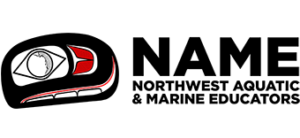Concurrent Session #1 • Tuesday, August 8 • 9:00 am – 12:00 pm
Alaska Oil Spill Curriculum for Educators
Lisa Matlock, Outreach Coordinator, Prince William Sound RCAC
Linda Robinson, Information & Education Committee Vice-Chair, Prince William Sound RCAC
The Prince William Sound Regional Citizens’ Advisory Council has worked with partners over the past 25 years to develop and refine the Alaska Oil Spill Curriculum. This curriculum helps youth, K-12 and beyond, who live anywhere learn everything about petroleum, from drilling to spilling. Please join us for an interactive demonstration of select activities from the curriculum.
Resources:
- The curriculum is available at: http://www.pwsrcac.org/outreach/education/
Large Education Events
Eric Stuart, School Programs Coordinator, BLM Campbell Creek Science Center
Molly Larmie, Science Instructor, BLM Campbell Creek Science Center
Using science, technology, engineering, art, and math, 4th grade students learn why bugs in your creek are important. Come discovery how the Campbell Creek Science Center has adaptive Water Discovery Days over the last 16 years to increase student retention and work with a variety of community partners.
Talking Trash: Wilderness, Marine Debris, and the Future of our Only Ocean
Jim Pfeiffenberger, Education Coordinator, Ocean Alaska Science and Learning Center, Kenai Fjords National Park
The National Park Service recently undertook a major survey of marine debris across 5 of Alaska’s coastal national parks, as well as establishing sites for ongoing monitoring of marine debris accumulation rates. This presentation will share results from this survey, as well as information about marine debris on a broad scale. Finally, ideas will be shared about involving your community or classroom in marine debris and microplastic monitoring.
Resources:
- Ocean Alaska Science and Learning Center
- Keeping Alaska’s Coastlines Clean Story Map
- Gyre: The Plastic Ocean Exhibit
Science and Stewardship in the Outdoors
Katie Gavenus, Special Program Coordinator, Center for Alaskan Coastal Studies
Seth Spencer, School Program Coordinator, Center for Alaskan Coastal Studies
The Center for Alaskan Coastal Studies (CACS) has been providing place-based residential education programs at the Peterson Bay Field Station for 35 years. These hands-on, experiential education overnight programs serve as a starting point to begin building a connection to place and the outdoors, reaching over 1200 students and teachers each year. CACS has been working to “grow” their special programs that are offered over the summer and throughout the school year that move to build a deeper and stronger connection and understanding through exploring three avenues of authentic learning experiences: food systems/sustainability, zero-waste/marine debris, and citizen science. Come hear about these programs, how they work to inspire youth to make decisions that promote the health of our environment as well as promote personal growth and communication skills.

